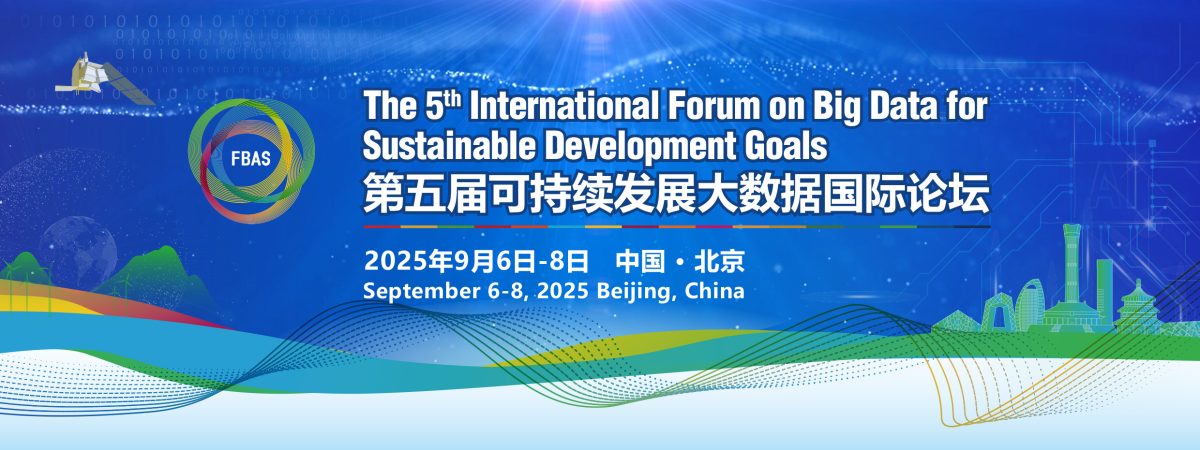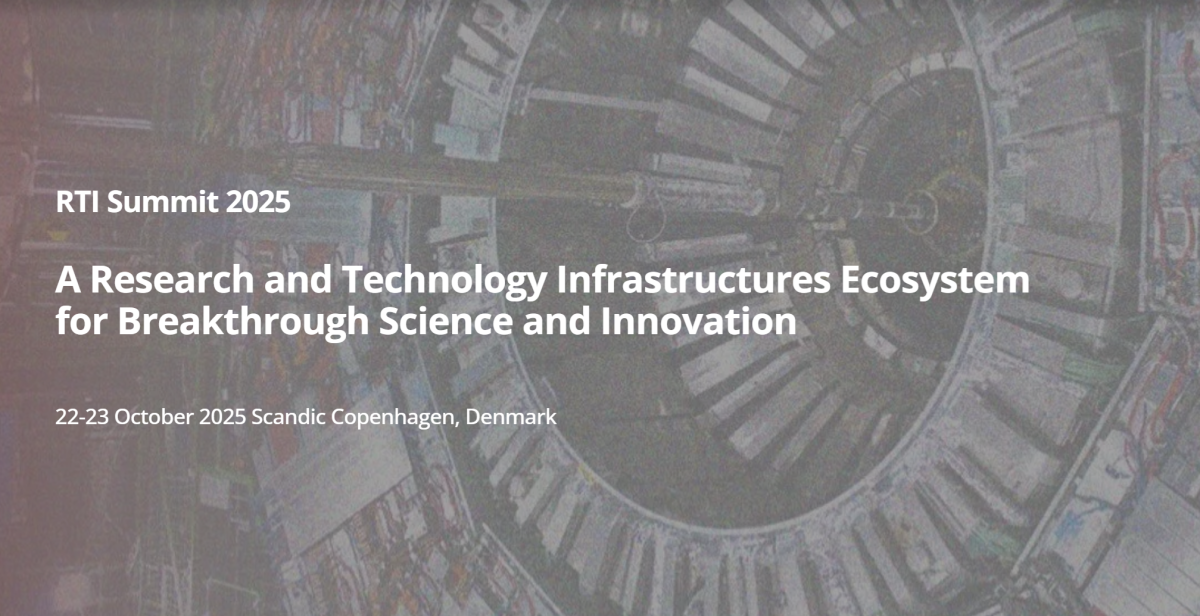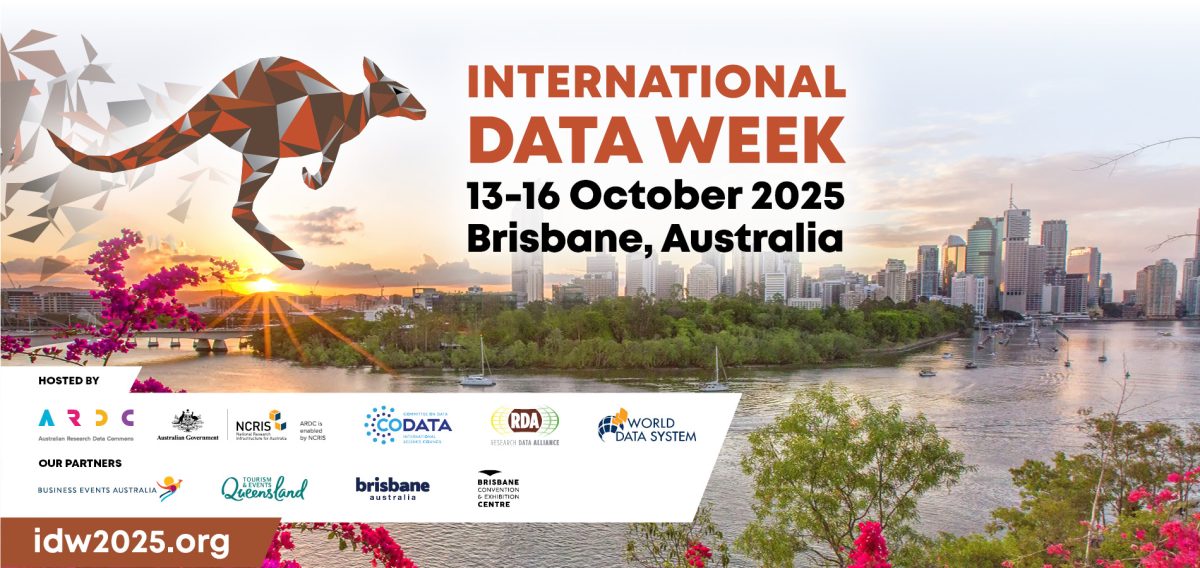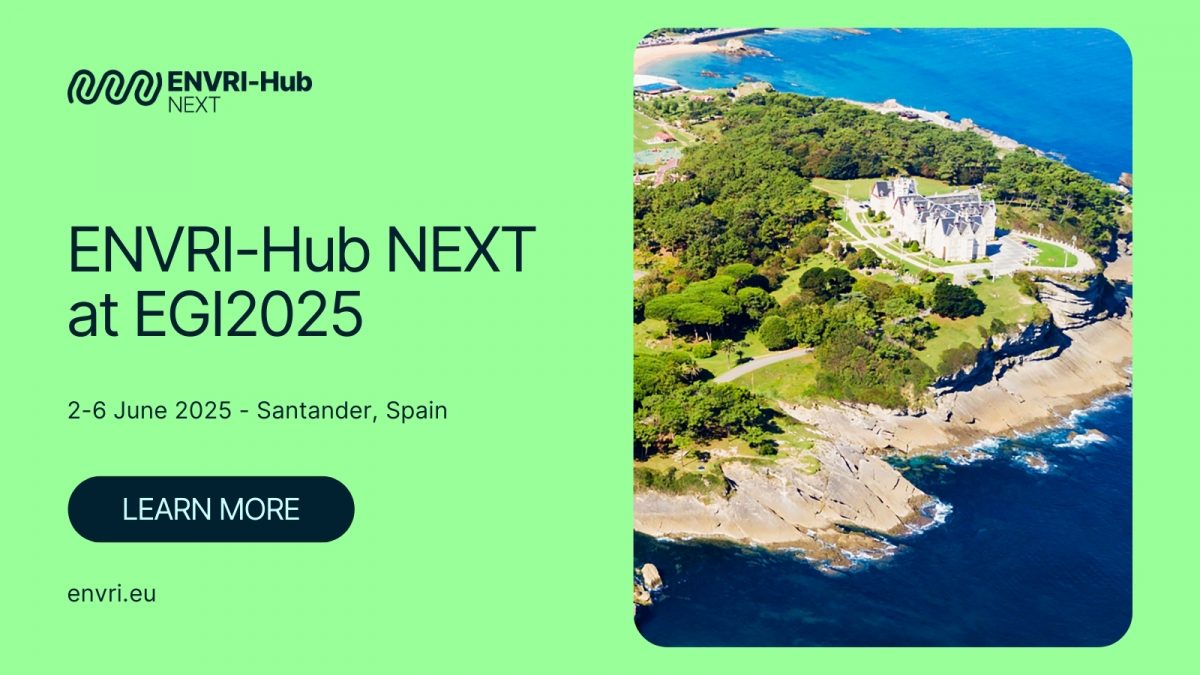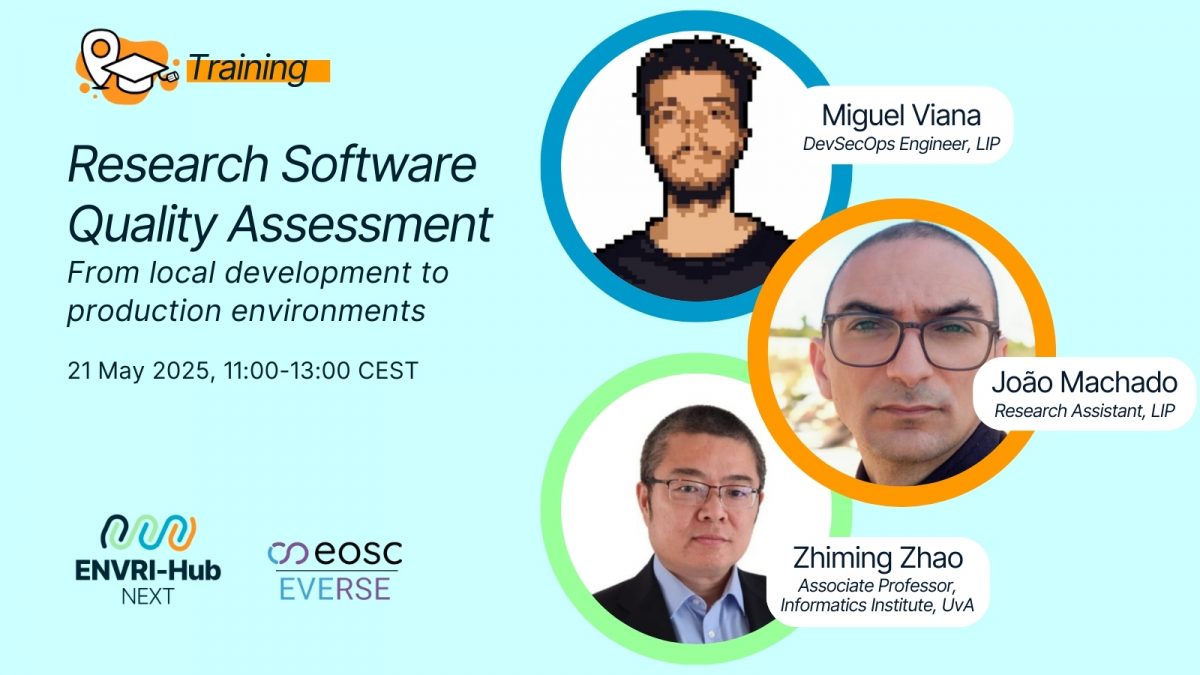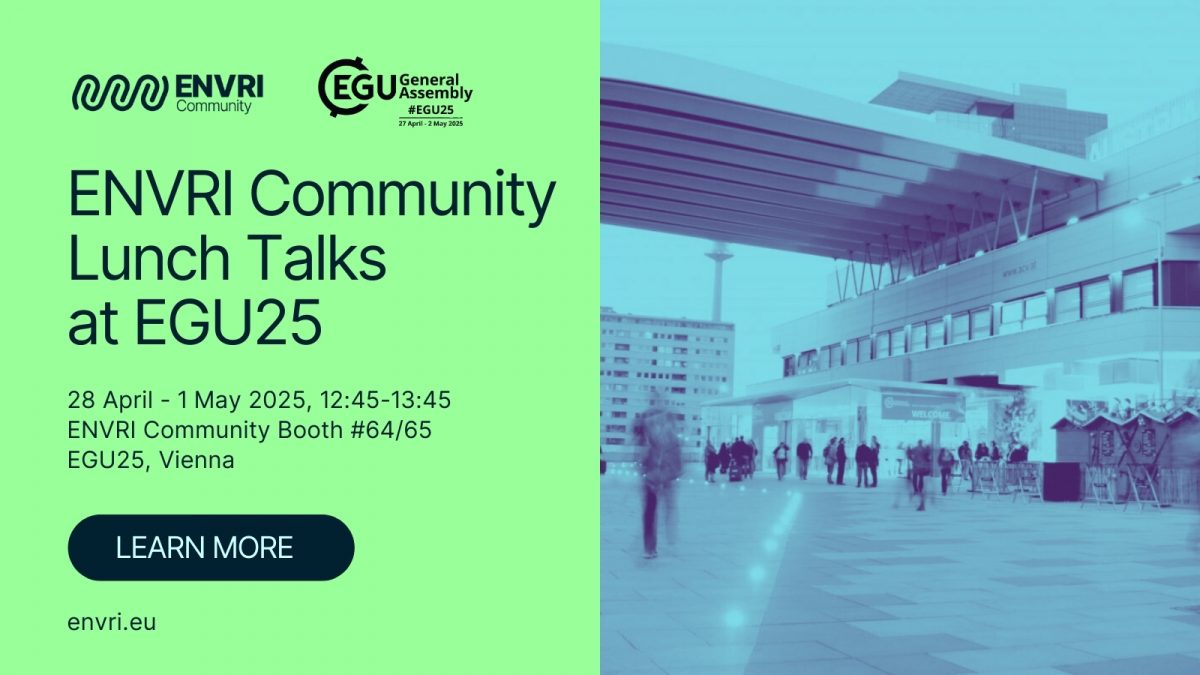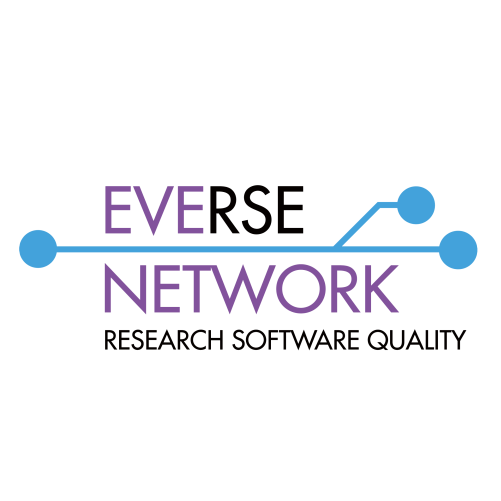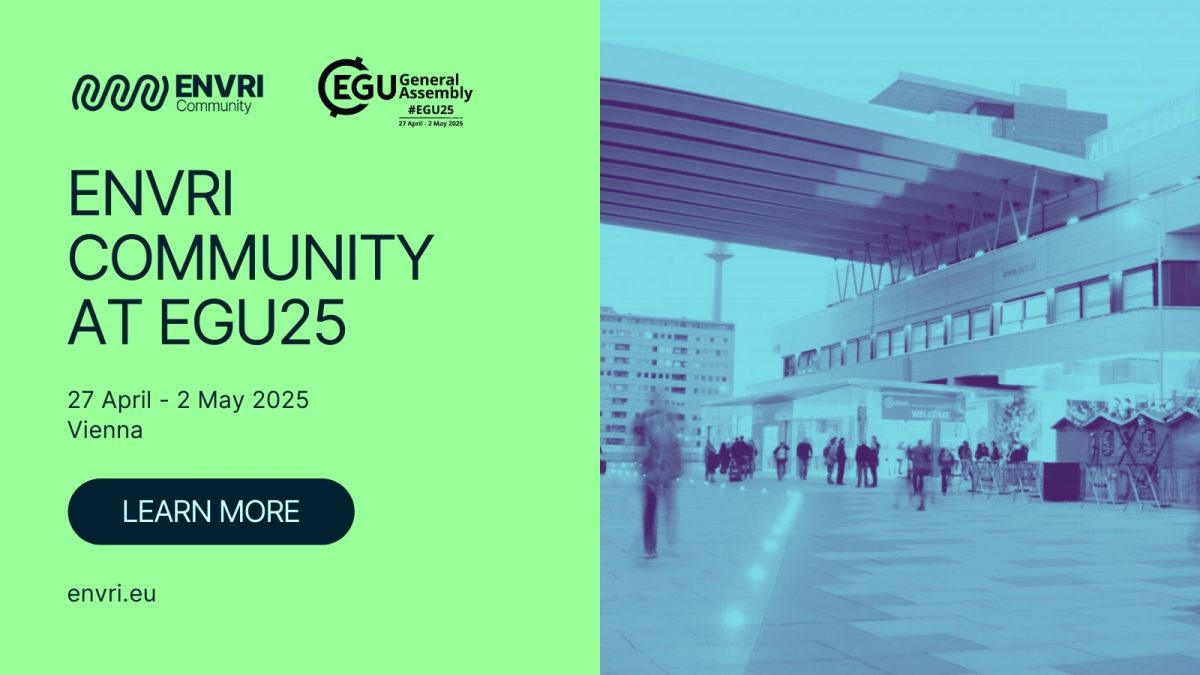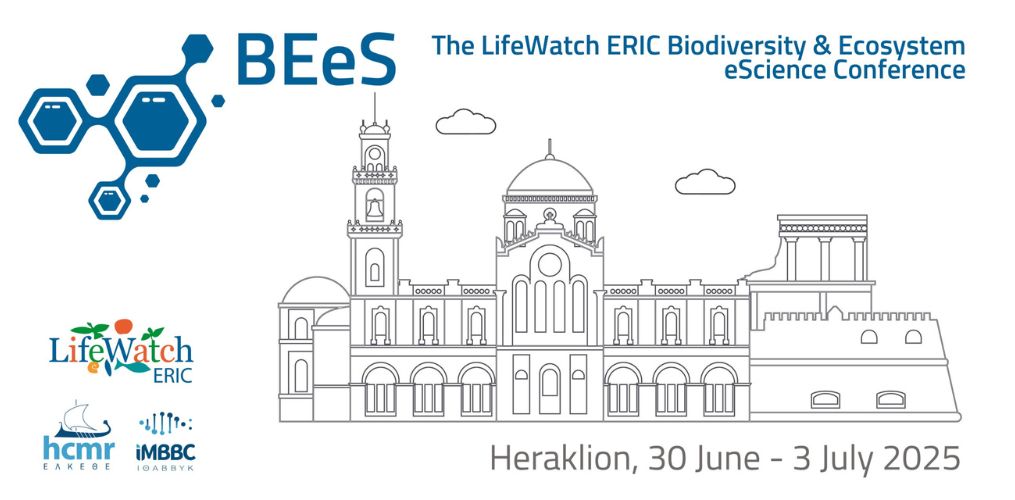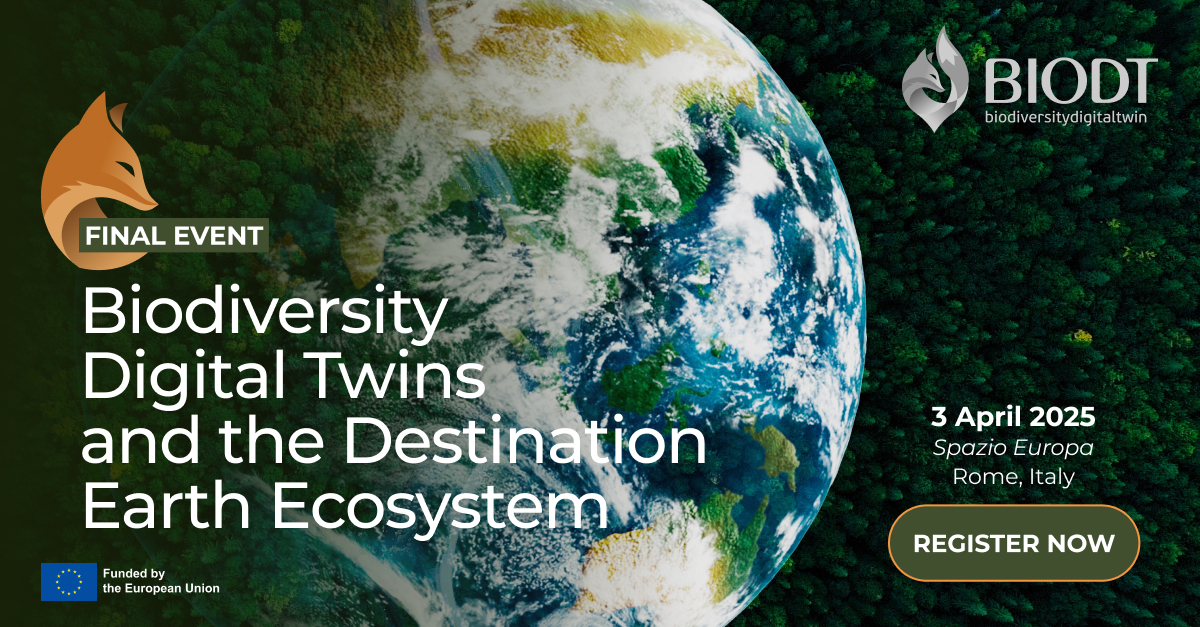Get your daily dose of highlights from environmental research infrastructures and supporting projects during EGU25! Join our Lunch Talks at the ENVRI Community booth (Entrance Hall, booth 64-65) Monday till Thursday between 12:45 and 13:45. No registration required. Listen to our experts, and join the conversation. Full programme below:
Monday, April 28
ENVRI community core projects: innovation and access
12:45-12:55
“ENVRI-Hub NEXT: Advancing Cross-disciplinary Collaboration and FAIR Data Integration in Environmental Research” by Ulrich Bundke, FZJ & ENVRI-Hub NEXT Technical Coordinator
A brief introduction to the ENVRI-Hub NEXT project: ENVironmental Research Infrastructures delivering an open access Hub and NEXT-level interdisciplinary research framework providing services for advancing science and society
12:55-13:05
“ENVRINNOV: introducing innovation support for, and by, the ENVRI community” by Marina Papageorgiou, ENVRINNOV Project Coordinator
Join this talk to find out how ENVRINNOV can support innovation for your RI and help facilitate collaboration with science and industry to drive development and adoption of new technologies and services. The ENVRINNOV project is developing a common innovation roadmap for the ENVRIs, along with online resources, training and networks to promote innovation for, and by, the community
13:05-13:15
“ATMO-ACCESS: Offering Sustainable Access to Atmospheric Research Facilities” by Ariane Dubost, ACTRIS-FR Communications officer
Showcase of ATMO-ACCESS Transnational and Virtual Access opportunities targeting atmospheric research community and beyond!
13:15-13:25
“Navigating Climate Risks: How to Discover and Access IRISCC Services” by Paivi Haapanala
Demonstration of how users can find, navigate and apply for access to IRISCC services
13:25-13:35
“OSCARS: Open Science. Built by you” by Anca Heinola, Finnish Meteorological Institute
OSCARS flips Open Science on its head by funding researchers directly to create the services and tools they actually need. Through cascading grants, competence centres, and a focus on community-driven innovation, OSCARS builds a more usable, flexible, and truly researcher-shaped EOSC.
13:35-13:45
“Introduction to the IAGOS services for EU projects” by Hannah Clark
Contributions from IAGOS to the projects ATMO-ACCESS, IRISCC and RI-URBANS
Tuesday, April 29
Virtual access and modelling
12:45-12:55
“From Data to Discovery: EGI’s Advanced Computing for Environmental Research” by Marta Gutierrez, Community Support Specialist EGI Foundation
Showcase our services to the environmental research community together with success stories
12:55-13:05
“AnaEE, experimenting and modelling the future of ecosystems” by Biljana Đorđević, Scientific Officer
AnaEE is linked with many RI in the ENV and H&F domain. Its catalogue app is the basis for 4 projects, and several RI in project.
13:05-13:15
“Collaborative virtual labs in the cloud with Notebook-as-a-VRE” by Gabriel Pelouze, LifeWatch
Presentation of NaaVRE, which allows users to create workflows from Jupyter notebooks and run them in the cloud, and the co-development of virtual labs
13:15-13:25
“ENES-RI: towards a sustained climate modelling research infrastructure” by Giovanni Chellini, ENES-RI Scientific Officer
Presentation of the ENES-RI sustained climate modelling infrastructure currently under preparation as a continuation of IS-ENES
Wednesday, April 30
Services and Opportunities from ENVRIs and projects in the atmosphere, ecosystem and multi-domains
12:45-12:55
“ICOS Greenhouse Gas Observation Data & Services” by Claudio D’Onofrio, Project Manager at ICOS Carbon Portal
In this talk we will present ICOS data products and access with our in-house VRE
12:55-13:05
“SIOS Services for high Arctic research” by Heikki Lihavainen, Director of SIOS
Presenting SIOS Services with showcases, including POLARIN project providing TA and VA to Polar stations and ice breakers
13:05-13:15
“eLTER’s services for researchers” by Ulf Mallast, Head of eLTER Service Development
Introducing eLTER’s new researcher-focussed services that promote access to data, research sites and socio-ecological platforms
13:15-13:25
“Transdisciplinary services for research in AgroEcology, a new approach” by Michel Boër, coordinator
Agroserv is the first infra-serv project in agroecology. We feature common services between several RIs, 5 living-labs, and specific integrated catalogue of 150 services
13:25-13:35
“ACTRIS Services for Science, Society, and Innovation” by Giulia Saponaro, Senior Officer, Communications and External Relations
Interested in atmospheric research? Learn how ACTRIS connects you with world-class facilities, data, and an expert community to advance your research and tackle today’s atmospheric challenges
Thursday, May 1
Marine domain Research Infrastructures, projects and training opportunities
12:45-12:55
“GEORGE – Next Generation Technologies for Ocean Observations” by Janne-Markus Rintala, Project Cooridator
Presentation on the key technology innovations and training opportunities for RI professionals
12:55-13:05
“Argo in polar latitudes” by Birgit Klein, Argo Germany lead
Extending Argo towards the ice covered areas
13:05-13:15
“AMRIT services for the European and Global Ocean Observing Systems” by Sara Pero
Introduction to the AMRIT project and how it is supporting Marine RIs integration
13:15-13:25
“EMSO Academy: Advancing Marine Science Expertise” by Sara Pero
From summer school to training, the EMSO opportunities for enhancing skills in marine science
13:25-13:35
“SeaDataNet – Evolution of the infrastructure and current status” by Alessandra Giorgetti
SeaDataNet has been developed since 2006 as a pan-European marine data infrastructure based on over 100 national oceanographic data centres and almost 900 data providers. SeaDataNet services and standards are used by regional and European data infrastructures to format, harmonise and make accessible measurement data.
13:35-13:45
“Blue-Cloud 2026 – Federated European FAIR and Open Research Ecosystem for oceans, seas, coastal and inland waters” by Dick M.A. Schaap, Blue-Cloud 2026 Technical Coordinator
Giving an overview of Blue-Cloud VRE, Virtual Labs, WorkBenches, and Data Lakes and its federation with EDITO
In addition to the booth presence, the ENVRI community supports and promotes several key sessions that highlight the role of RIs in advancing environmental science. You can read more about the ENVRI Sessions and Splinter meetings on the main ENVRI at EGU event page.


